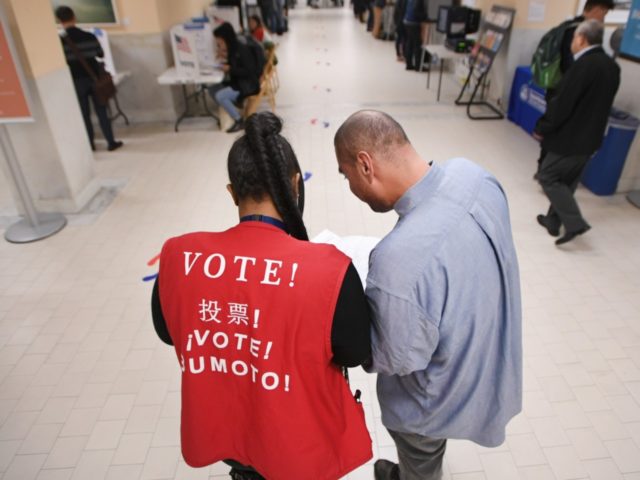Maine lawmakers are considering legislation that would expand their current ranked-choice voting system to presidential elections.
The bill, which is currently being debated in the state house and had its first public hearing on Wednesday, would allow voters to cast a ballot for a preferred candidate and rank the additional candidates on the ballot in order of their choosing in presidential primary and general elections.
If a candidate does not win the majority of the votes on the first count, election officials take the votes from the candidate who finishes last and redistribute them to each voter’s second choice listed on the ballot.
Election officials continue this process until a candidate gains at least 50 percent of the vote.
The system currently applies only to party primaries and general elections for congressional races.
Senate President Troy Jackson (D-Allagash), the bill’s primary sponsor, took questions from lawmakers on the Veterans and Legal Affairs Committee at the hearing and promoted the bill as a way for voters to “rank candidates” by who they feel will best represent them.
“People shouldn’t feel like they have to choose the lesser of two evils in a primary,” says Jackson. “They should be able to rank candidates by who they believe will best represent their interests. This bill will do just that.”
No one testified at the hearing, but one state election official raised concerns that there could be logistical issues in implementing the legislation because it would complicate already set deadlines for ballots to be delivered to overseas voters and members of the military.
The state is also considering a bill calling for a constitutional amendment that would allow ranked-choice voting in state-level races.
Under the state constitution, state-level races— such as those for gubernatorial and state legislature— are decided by plurality vote where the candidate who gets the most votes in one count wins the election.
Several Republicans have criticized the proposals currently up for debate in the legislature, with some voicing concerns with how the ranked-choice voting system could confuse voters.
“This was obviously an experiment and it hasn’t worked out, it’s caused more confusion and again less voter confidence, and I think voter confidence is essential,” Maine state Rep. Joel Stetkis (R-Canaan) told WGME.
“To me it puts a stronger divide and causes more friction by putting this in than if you just voted for the person you wanted,” state Sen. Scott Cyrway (R-Benton) told Maine Public Radio.
The proposed bills could have major implications for the 2020 elections, as one incumbent congressman lost his election in the 2018 midterm elections due to Maine’s ranked voting system.
Rep. Bruce Poliquin (R-ME) lost his election to Democrat Jared Golden in a recount due to the state’s controversial ranked-choice voting system.
Maine Secretary of State Matt Dunlap, a Democrat, declared Golden the winner in a November 15 recount even though Poliquin received 2,632 more votes.
The 2018 midterm election in Maine was historic on both the state and the federal level. It was the first time Maine used a ranked-choice voting system in a federal election, and it was the first time in American history candidates running for a federal office had been selected under this system.
Former Maine Gov. Paul LePage, in one of his final acts in office, decided to protest Golden’s electoral victory by writing the words “stolen election” on an election certificate certifying the win.

COMMENTS
Please let us know if you're having issues with commenting.